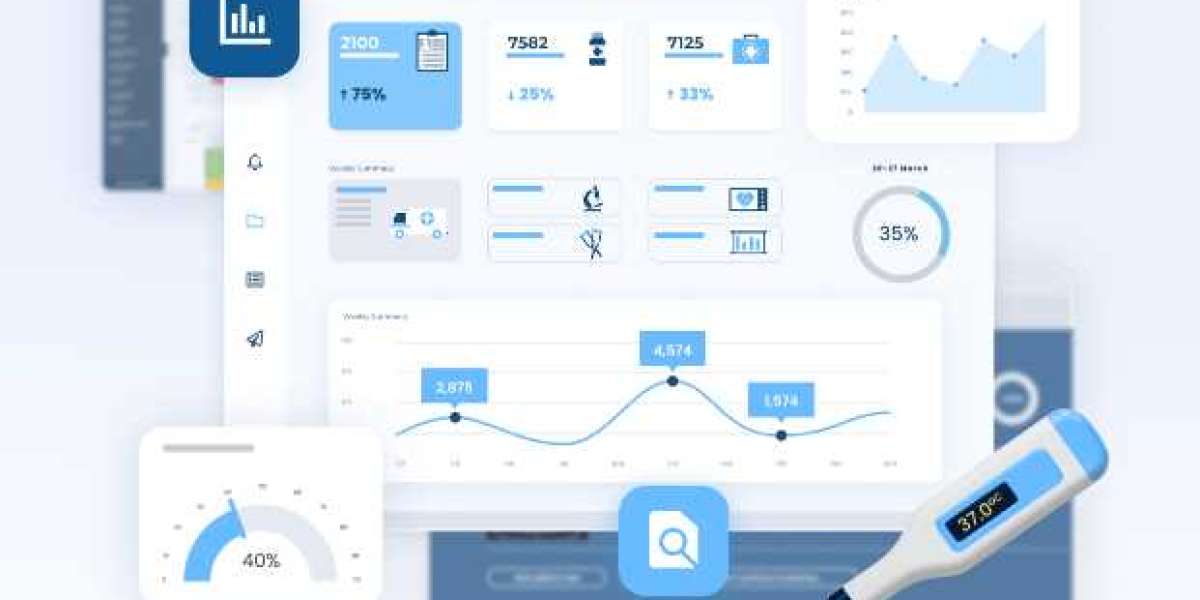In today's fast-paced healthcare environment, pharmacy management software (PMS) plays a crucial role in streamlining operations, enhancing patient safety, and ensuring compliance with regulations. As the demand for efficient pharmacy services increases, the development of advanced pharmacy management software has become essential for pharmacy owners and healthcare providers. This article delves into the various aspects of pharmacy management software development, including its significance, key features, development processes, challenges, and future trends.
Understanding Pharmacy Management Software
Pharmacy management software is a comprehensive solution designed to manage a pharmacy's day-to-day operations. It integrates various functionalities such as prescription processing, inventory management, patient management, billing, and reporting. The ultimate goal of PMS is to optimize pharmacy workflows, reduce errors, and enhance the quality of patient care.
Key Features of Pharmacy Management Software
Prescription Processing: PMS automates the prescription filling process, allowing pharmacists to manage electronic prescriptions (ePrescriptions), verify medication orders, and prevent medication errors. With built-in drug interaction checks and allergy alerts, pharmacists can ensure patient safety.
Inventory Management: Effective inventory management is crucial for pharmacies to maintain adequate stock levels and avoid shortages. PMS tracks inventory in real-time, provides alerts for low stock, manages expiration dates, and automates reordering processes.
Patient Management: PMS maintains comprehensive patient profiles, including medication history, allergies, and health conditions. This feature enables pharmacists to provide personalized care, improve medication adherence, and enhance patient outcomes.
Billing and Claims Management: PMS streamlines the billing process by managing insurance claims, co-pays, and reimbursements. It ensures accurate billing and facilitates faster payment cycles, improving the pharmacy's cash flow.
Reporting and Analytics: Advanced reporting features allow pharmacy owners to analyze sales data, inventory turnover, and patient demographics. These insights help in making informed decisions and identifying growth opportunities.
Regulatory Compliance: Compliance with healthcare regulations is critical for pharmacies. PMS includes features that help ensure adherence to regulations such as HIPAA (Health Insurance Portability and Accountability Act) and DEA (Drug Enforcement Administration) requirements, reducing the risk of non-compliance penalties.
The Importance of Pharmacy Management Software
The significance of pharmacy management software cannot be overstated. As healthcare systems become more complex, PMS offers numerous benefits that enhance pharmacy operations and patient care.
1. Increased Efficiency
Pharmacy management software automates many routine tasks, reducing the time and effort required for manual processes. This efficiency allows pharmacists to focus more on patient care and consultation, ultimately improving service delivery.
2. Enhanced Accuracy
Medication errors can have dire consequences for patients. PMS minimizes the risk of errors by providing tools for accurate prescription verification, dosage calculations, and drug interaction alerts. This leads to safer medication dispensing and better patient outcomes.
3. Improved Patient Care
By maintaining detailed patient records, PMS enables pharmacists to offer tailored services that meet individual patient needs. Pharmacists can access a patient's medication history, identify potential issues, and provide personalized counseling to enhance medication adherence.
4. Financial Management
PMS helps pharmacies manage their finances more effectively by streamlining billing processes, tracking expenses, and generating financial reports. This financial oversight is essential for maintaining profitability and sustainability in a competitive market.
5. Data-Driven Decision Making
Access to comprehensive data allows pharmacy owners to make informed decisions regarding inventory management, staff allocation, and marketing strategies. This data-driven approach can lead to improved operational efficiency and enhanced patient services.
The Development Process of Pharmacy Management Software
Developing pharmacy management software involves several structured steps to ensure that the final product meets the needs of pharmacy stakeholders while complying with regulatory requirements.
1. Requirement Analysis
The first step in the development process is gathering requirements from stakeholders, including pharmacists, pharmacy technicians, and healthcare providers. This analysis helps identify the specific needs of the pharmacy and ensures that the software will address these needs effectively.
2. System Design
Once the requirements are gathered, the next step is to design the software architecture. This includes defining the user interface (UI) and user experience (UX) to ensure that the software is intuitive and easy to navigate. The design phase also involves selecting the appropriate technology stack for development.
3. Development
The actual coding of the pharmacy management software takes place in this phase. Developers work on implementing the features and functionalities outlined in the design. Agile development methodologies may be employed to allow for flexibility and iterative improvements throughout the development process.
4. Testing
Testing is a critical phase in the development process. It involves several types of testing, including unit testing, integration testing, and user acceptance testing (UAT). The goal is to identify and resolve any bugs or issues before the software is deployed.
5. Deployment
Once testing is complete and any identified issues are resolved, the software is deployed to the pharmacy's operational environment. This phase may include training for pharmacy staff on how to effectively use the new system.
6. Maintenance and Support
After deployment, ongoing maintenance and support are essential to ensure that the software continues to function effectively. This includes regular updates, bug fixes, and user support to address any issues that arise.
Challenges in Pharmacy Management Software Development
While developing pharmacy management software offers numerous benefits, it also presents several challenges that must be addressed to ensure a successful implementation.
1. Regulatory Compliance
Pharmacies are subject to strict regulations, and non-compliance can lead to serious consequences. Ensuring that the software adheres to all relevant regulations, such as HIPAA and DEA requirements, is a significant challenge during development.
2. Integration with Existing Systems
Many pharmacies already use various software systems for different aspects of their operations. Integrating the new PMS with existing systems can be complex and may require custom development to ensure seamless data flow between platforms.
3. User Adoption
User resistance to adopting new technology can hinder the successful implementation of pharmacy management software. Providing adequate training and support is essential to encourage user adoption and ensure that pharmacy staff are comfortable using the new system.
4. Data Security
Pharmacies handle sensitive patient information, making data security a top priority. Developers must implement robust security measures, including encryption, user authentication, and regular security audits, to protect patient data from breaches.
5. Cost Considerations
Developing and implementing pharmacy management software can be costly, particularly for smaller pharmacies with limited budgets. Balancing the need for advanced features with budget constraints is a common challenge in the development process.
Future Trends in Pharmacy Management Software Development
As technology continues to evolve, pharmacy management software is expected to undergo significant changes. Here are some key trends shaping the future of PMS development:
1. Cloud-Based Solutions
Cloud-based pharmacy management software is becoming increasingly popular due to its scalability, flexibility, and cost-effectiveness. Cloud solutions allow pharmacies to access their systems from anywhere, improving collaboration among healthcare providers and enhancing service delivery.
2. Artificial Intelligence and Machine Learning
The integration of AI and machine learning in pharmacy management software can enhance decision-making and improve patient outcomes. These technologies can analyze patient data to identify trends, predict medication adherence, and suggest personalized treatment plans.
3. Telepharmacy Integration
As telehealth continues to gain traction, pharmacy management software must adapt to integrate telepharmacy services. This includes remote patient consultations and ePrescribing, allowing pharmacists to provide care to patients regardless of location.
4. Enhanced Data Analytics
Advanced data analytics will enable pharmacies to gain deeper insights into their operations and patient care. By leveraging big data, pharmacies can optimize inventory management, improve patient outcomes, and identify new business opportunities.
5. Mobile Applications
The rise of mobile applications offers pharmacies the chance to engage with patients in new ways. Mobile apps can provide medication reminders, refill requests, and access to patient health records, improving patient adherence and satisfaction.
6. Interoperability
The future of pharmacy management software will likely emphasize interoperability with other healthcare systems, allowing for seamless data exchange between pharmacies, hospitals, and healthcare providers. This will enable a more coordinated approach to patient care.
Conclusion
Pharmacy management software development is a critical component of modern healthcare. By streamlining operations, enhancing patient safety, and improving overall efficiency, PMS solutions are transforming the pharmacy landscape. As technology continues to advance, pharmacies must stay ahead of the curve by adopting innovative software solutions that meet the evolving needs of their patients and the healthcare system at large.
Investing in pharmacy management software is not just about keeping up with the competition; it’s about providing the highest quality of care to patients. By embracing these technologies, pharmacies can ensure they remain vital partners in the healthcare ecosystem, driving positive outcomes for their patients and the community. As the industry continues to evolve, the future of pharmacy management software looks promising, with new technologies paving the way for improved efficiency, accuracy, and patient care.









